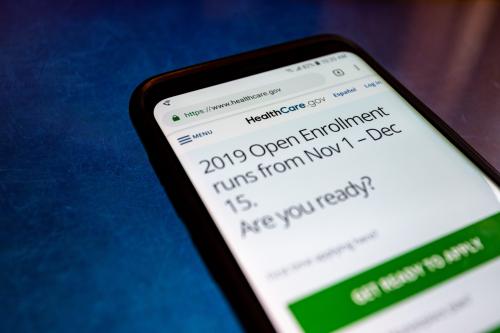The author submitted the comment letter to the Centers on Medicare and Medicaid Services on April 11, 2025.
The Department of Health and Human Services (HHS) recently issued the Marketplace Integrity and Affordability proposed rule, which would make a range of changes to the process for enrolling in Marketplace coverage, the standards Marketplace plans must meet, and the subsidies available to Marketplace enrollees. Matthew Fiedler submitted a comment letter that makes three points about the analysis that HHS issued in support of the proposed rule:
- Abundant evidence shows that, contrary to HHS’ assumptions, administrative burdens created by HHS’ changes to the Marketplace enrollment process would deter eligible people from enrolling, reducing insurance coverage and increasing insurance premiums.
- HHS does not meaningfully justify its claim that its proposed changes to special enrollment period (SEP) policies would sharply reduce premiums, and HHS is ignoring evidence that could allow it to make a more evidence-based assessment of these policies.
- HHS’ methods for estimating the extent of improper enrollment have serious flaws. Some other approaches that lack these flaws do suggest that there are a relatively large number of Marketplace enrollees with incomes just above 100% of the federal poverty level (FPL) in Medicaid non-expansion states. However, it is not clear how much such enrollment there is or how much of that enrollment is improper. Moreover, even to the extent that some is improper, it points to a narrower and more specific problem than the one HHS suggests exists.
The Brookings Institution is committed to quality, independence, and impact.
We are supported by a diverse array of funders. In line with our values and policies, each Brookings publication represents the sole views of its author(s).






Commentary
Comments on the HHS Marketplace Integrity and Affordability rule
April 15, 2025